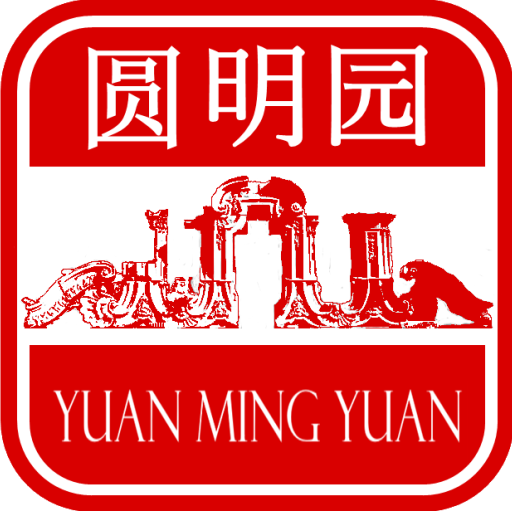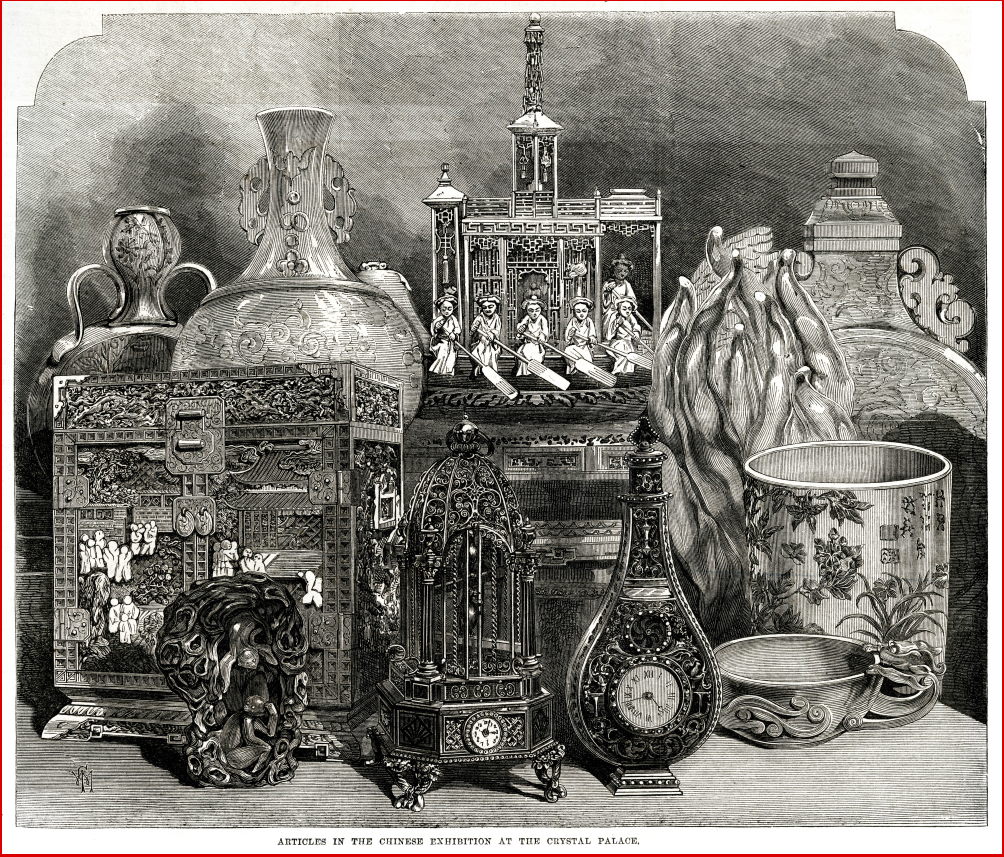The looting
During the Second Opium War waged by the British Empire and France, the Old Summer Palace was looted and burned down.
The Sack of the Old Summer Palace
On the night of 5 October 1860, French troops arrived at the edge of the Summer Palace, which was then occupied by only a few eunuchs and protected by some Chinese soldiers. On 7 October, as Chinese soldiers left the Palace, the French general Charles Cousin de Montauban, along with General Sir Hope Grant of the British Army, and Lord Elgin, decided to enter the Palace and organize the looting. They appointed three commissioners for each army responsible for listing the most precious items and sharing them between the French and the British.
In his memoirs, the French general noted: Lord Elgin therefore chose a “baton of command” in green jade that belonged to the emperor of China, and which the Chinese considered to be of high value. Later, a similar stick was found, and was intended for His Majesty, Emperor of the French.
On the French side, it was decided that the more valuable works should be taken to be given to Empress Eugenie. Some items were also intended for the French Ambassador, the Minister of War and certain military officers. According to Charles Cousin de Montauban, French troops were not directly involved in the looting, but seized the booty of local bandits who entered the site of the Old Summer Palace. However, in their memoirs, many French soldiers mentioned the looting they committed in the Old Summer Palace. British and French troops tried to steal whatever was within their reach. Western artefacts, like clocks, were their favourite pieces, but they also plundered the silks, ivories, bronzes and porcelains from the many palaces of Yuanmingyuan. What was not stolen was broken. Treasures of humanity then disappeared.
Fire !
Charles Cousin de Montauban, deplored the looting of China’s archives which held part of the country’s history, but he did nothing to prevent it. On October 8, a fire broke out when Franco-English troops discovered the personal effects of Western hostages who had been tortured.
The destruction of the Old Summer Palace began on 18 October 1860, at the behest of Lord Elgin. This was in retaliation for the mistreatment of British hostages, and to force the Chinese Emperor to sign the peace treaty. The British Expeditionary Force then set fire to the Old Summer Palace. While the French participated in the looting a few days earlier, the French Ambassador, Baron Gros, and the French generals opposed this decision, and did not join in. Baron Gros, representative of France, considered this fire to be “unnecessary and dangerous revenge”.
British ambassador, Lord Elgin, for a time envisioned the burning of the Forbidden City in the heart of Beijing, but decided against it.
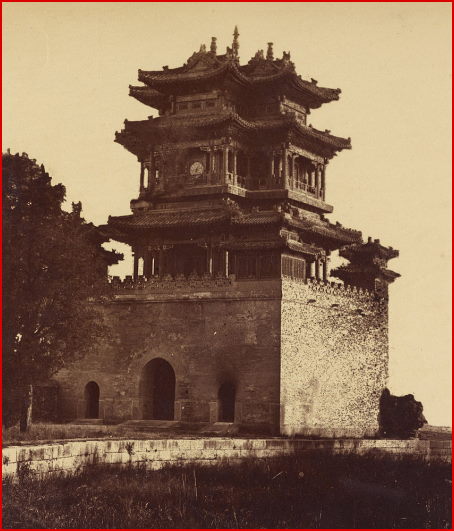
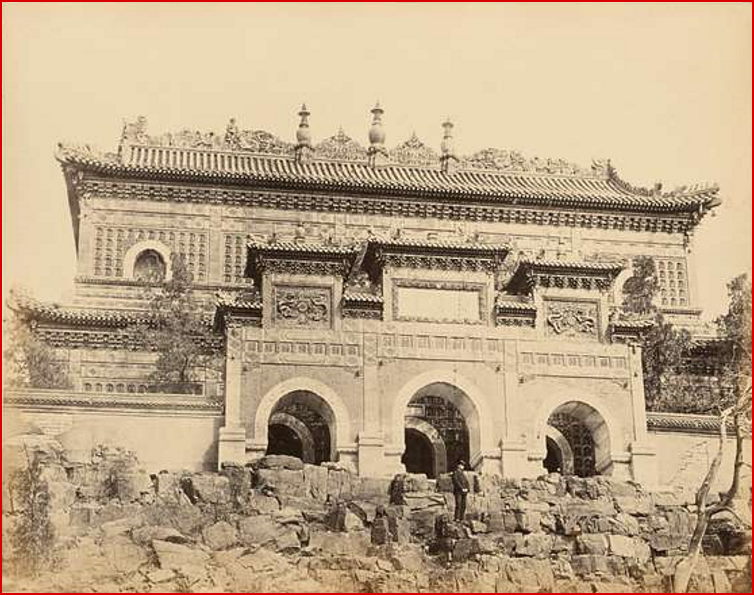
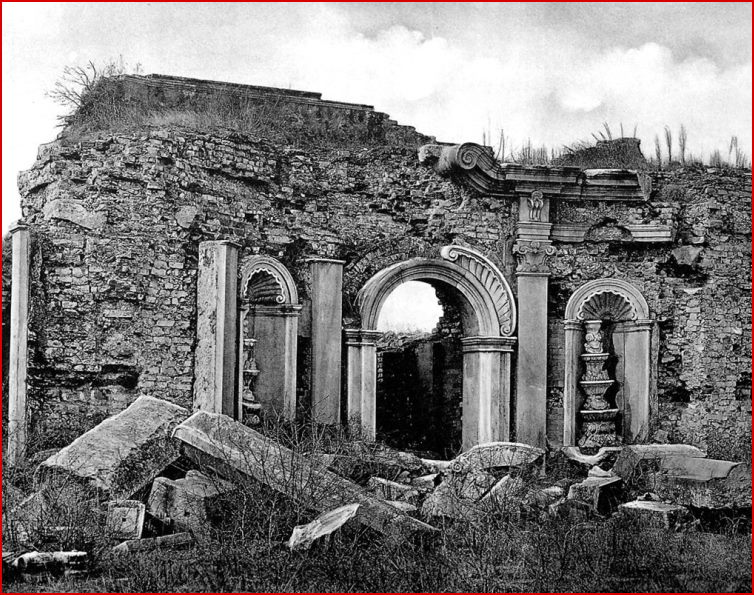
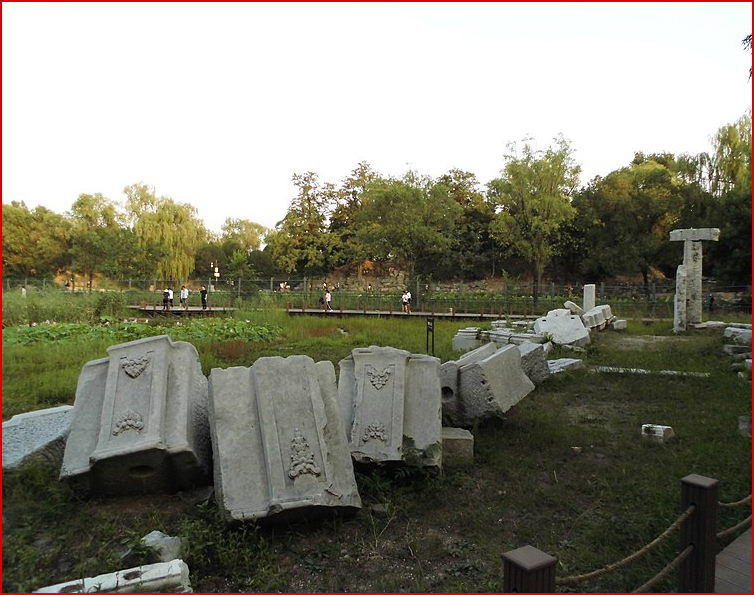
After the fires, which left only 13 buildings intact, much of the Old Summer Palace fell into disrepair, and some of the stones were used by the inhabitants for the construction of their houses.
